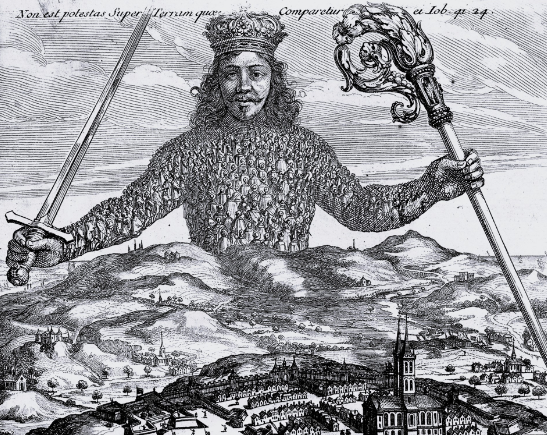X, the platform formerly known as Twitter, is undergoing a long, uncertain transition. Under the earlier dispensation, the platform ostensibly distributed social capital roughly in accordance with the prestige hierarchies of the professional class. The old verified accounts were obtained by way of fame achieved elsewhere or affiliation with a recognized institution. Now, verification and the once-exclusive blue checkmark are commodities for purchase, available to anyone with eight bucks a month to spare, with a promise that content monetization might offset this expense. Denizens of Elon Musk’s fiefdom increasingly inhabit a shiny world of ads, bots, crypto hawkers, and an increasing commercialization of pretty much everything.
What animated Twitter wasn’t merely the existence of the old blue-check aristocracy, but the promise of proximity to it. In this respect, the site’s basic architecture inverted crucial aspects of the last 30 years of neoliberal globalization. The neoliberal order brought about an unprecedented accumulation and concentration of financial, social, and cultural capital. Twitter, however, suspended this logic of spatial segregation. The fortresses of the 21st century—the private resorts, gigayachts, luxury penthouses, inaccessible in-crowd bars, restaurants, and clubs at the centers of global metropolitan centers—were undone by the platform’s protocol of radical and pervasive access.
In this way, Twitter from its origins cast users into a digital realm resembling the virtual birthplace of modern Western political philosophy: the strange universe of Thomas Hobbes, cradle to an uncanny equality quite distant from the more cheerful versions of Jean-Jacques Rousseau and Thomas Jefferson.
For Hobbes, the equality of man has an unlikely concrete origin: It is derived from his capacity to murder his peers. He writes in Leviathan: “When all is reckoned together, the difference between man, and man, is not so considerable, as that one man can thereupon claim to himself any benefit, to which another may not pretend, as well as he. For as to the strength of body, the weakest has strength enough to kill the strongest, either by secret machination, or by confederacy with others, that are in the same danger with himself.” The capacity for murder is thus what defines the social existence of humanity. Even the weakest man, through cunning, can commit the act. The social contract and the modern state arise from the need to keep this chaotic potential in check.
“No potentate or nepo baby can build walls high enough to fend off the murderous take.”
Far more than any other platform, Twitter facilitates, on a symbolic level, this capacity for murder, which the social order ordinarily attempts to suppress. The platform enables unrestricted access to every luxurious rural palais, every prime beach property, and the most exclusive of inner-city lofts; no potentate or nepo baby can build walls high enough to fend off the murderous take.
The drive-by assassination of wit, consisting of quote-tweeting, screencapping, or replying to anyone, no matter how lofty a personage, and being elevated by the popular vote of likes and retweets, leave victims speechless and stunned. The process generates meltdowns and frenzies of blocking, which in the end only underline and exacerbate the damage of the original crime. Musk’s recently announced plan to disable the block function would in theory only further the radical proposition of a universe of unlimited social revenge, accessible to everyone in principle.
This process has enabled a generalized demystification. Shrunken into the ridiculousness of awkward social-media staffers, the image of the state as a sublime abstraction, only encountered by way of opaque institutions and monumental architectures, falls like scales from our eyes. It turns intuitively into Max Weber’s mere “human community which successfully claims the monopoly of legitimate violence.” Much the same occurs with the corporation, the university, “civil society” morality (see Musk’s ongoing feud with the Anti-Defamation League), and the abstract white-coat cloaked “scientific consensus”: All are reduced to the pettiness of mediocre shill accounts.
Twitter’s rise was fueled by the dark energies of the peasant revolt and the guillotine: It promised a universe of radical egalitarianism, of warring tribes and rampaging mobs. Even the millions of bots, the discrete downweighting and shadowbanning, the harassment networks controlled by governments and corporations, didn’t manage to put the genie of popular spite back into its bottle.
The most likely reason for this is that the state, that most powerful network of networks, has been unable to subdue or co-opt fully the reserve armies of elite overproduction, which yield the platform sheer limitless divisions of ostentatiously disinterested authenticity, wit, and credibility. The sad orphaned accounts of state-funded vaccine-booster propaganda and the continued expert-class laments about disinformation demonstrate amply that a winning formula hasn’t been found.
X’s decline—or transformation into something unrecognizable—is more likely to come from its own internal evolution, in combination with Musk’s suite of haphazard populist reforms. Already, a content avant-garde on the perpetual hunt for the next thing looks increasingly bored in a realm in which legions of grifters and copycats drawn in with the promise of “shitposting UBI” vulgarize the raw counterintuitive aphorisms on which the platform once thrived.
Musk’s white whale—the everything-platform X—is another attempt to subsume the site’s swarms of warring equals into a more or less stable order: a digital Leviathan. But this dream risks putting an end to the classicism of Twitter—the site’s capacity to pierce through the baroque convolutions of a walled, sclerotic establishment. Already, the dilution of this sobering aesthetic of dry, ornament-less wit, which set Twitter apart from more visually rich social networks, may be prompting an exodus, or at least the pretense of one. It was this quality that allowed us to see the naked bodies of the emperor, an image that will continue to haunt us. The platform’s medium-message of radical, agonistic, individualist egalitarianism will be its lasting legacy.
